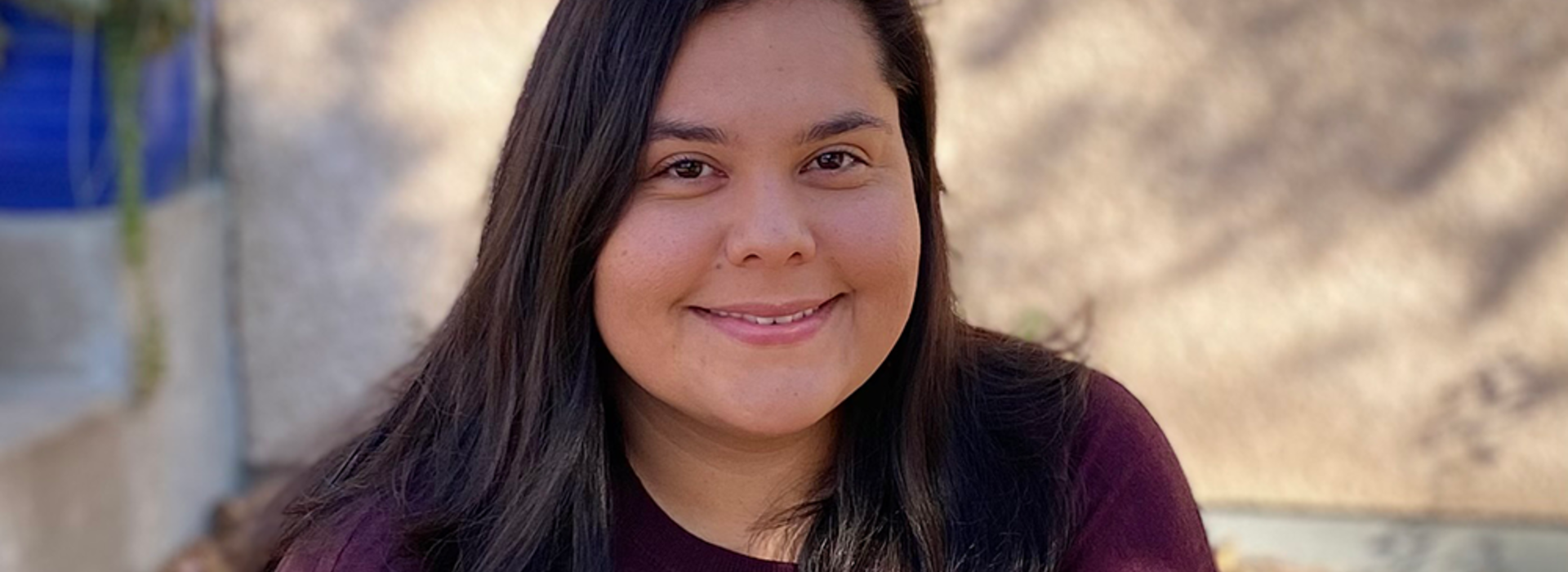
Alumna, Psychiatrist Follows Dream to Support Tribal Communities
November is National Native American Heritage Month, or as noted by the National Congress of American Indians, is commonly referred to as American Indian and Alaska Native Heritage Month. Since the beginning of the University of Minnesota Medical School, Duluth Campus, the mission has been to be a leader in educating physicians dedicated to family medicine who will serve the needs of rural Minnesota and Native American communities.
Melvina Bissonette, ’12 MD, has a strong connection with this mission. This connection was shaped not only through the education she earned but also because of her strong roots in the Native American community and through her previous work for the Mille Lacs Band of Ojibwe as a psychiatrist.
Today, though, Dr. Bissonette works at the Minneapolis VA Health Care System, a place she says she enjoyed rotating through as a medical student and resident. In her work, she has provided outpatient psychiatric care, seeing patients as young as 12 years old. Although the challenges are, at times, frustrating, she understands the multiple layers that come with supporting her patients.
“I have to remind myself during those difficult times that everyone is doing the best they can, and my job is to meet them where they are at and do what I can to help,” she said. “But, I like helping people see the inner strength they have always possessed. That is what I like best about my work.”
Born and raised primarily on the Navajo Nation reservation in the Four Corners area of New Mexico, Dr. Bissonette always knew she would one day work to serve the needs of a Native American community. A year before she began to fill out applications to a variety of medical schools, she met the former director of the Medical School’s Center of American Indian and Minority Health at an Association of American Indian Physicians conference. After meeting and talking with the former director, Dr. Bissonette knew she had to apply to the school.
“I recall that when I flew up to Duluth for the medical school interview, I had this overwhelming feeling that this is where I needed to be,” she said. After the admissions process, Dr. Bissonette was offered attendance and she wholeheartedly followed her long-held belief that she was meant to work with tribal communities.
But, first? She needed to complete four years of medical school, where the programming included Native American medicine, and during the first week of classes, she recalls that she made a decision that deepened her experience and changed her life forever.
“Prior to starting medical school, I was known for being quiet or shy. I decided I could no longer be this way. I challenged myself to talk when I would have rather been quiet. Friends now describe me as extroverted, which I find funny, thinking of how quiet I used to be,” she said. “Speaking as a psychiatrist, I probably would have been diagnosed with social anxiety disorder in my youth and somehow stumbled upon doing my own form of prolonged exposure therapy.”
After graduating in 2012, Dr. Bissonette then finished her psychiatry residency in 2016, followed by working for the Mille Lacs Band of Ojibwe tribal clinics and chemical dependency center, which is about two hours outside of Minneapolis. At the tribal clinic, she developed and introduced telepsychiatric care to the community. Every work day for three years, she met with patients from four different clinical sites.
“I was a hundred percent telepsychiatry during that time,” Dr. Bissonette said. "If there are any positives to arise since the pandemic started, one is that I’m glad people are more open than ever to the use of telemedicine. When I first started providing care this way, there was some skepticism about whether people would utilize this service.”
In her previous role as a psychiatrist for the Mille Lacs Band of Ojibwe, Dr. Bissonette recognized the unique challenges of the Native American community. When considering how alumni might support Native American populations, both professionally and personally, she considers the history of tribal communities and the resilient legacy passed down to each generation.
“From my perspective, the Native American community as a whole tends to go unnoticed or is completely overlooked. At times we are made to feel invisible or made to feel like we have to hide who we are. It is not uncommon that when people think of Natives, they tend to think that there is only poverty or substance use within our communities,” Dr. Bissonette said. “Due to this kind of mentality, I had the unfortunate experience of meeting many Natives whose concerns were dismissed and they did not get the mental health care they needed. To this, I would say challenge your biases and educate yourself.”
Her advice to medical students, particularly those of Native American heritage:
“Our culture is rich, and our people all possess an inner strength. Our ancestors survived colonization, genocide, boarding schools and attempts to systemically strip our culture and who we are as a people. We are descended from all those who fought against this and survived. This strength has been passed on to us,” she said. “It is with this strength that we persevere through medical school when we feel so alone. It is with this strength we return to our communities to take care of our relations and provide them with the care they deserve.”